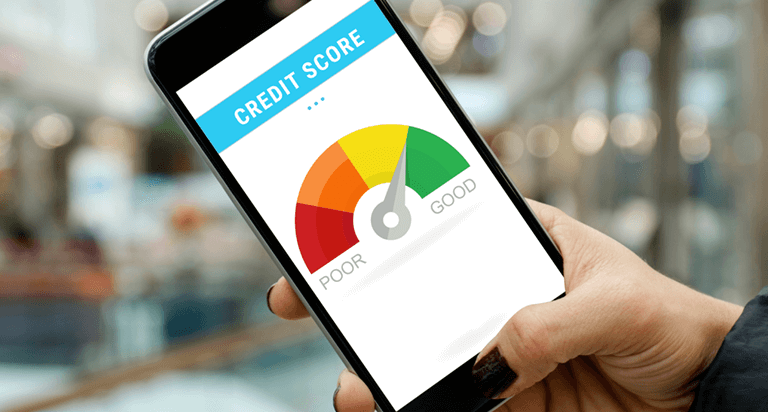What Is a Secured Credit Card and Does It Build Credit?
Secured credit cards require cash deposits and are a great choice for someone looking to build or improve your credit history. Secured credit cards are usually more accessible than other types of credit cards, which is helpful for those with little to no credit history. [Duration - 2:46]
Highlights:
- Secured credit cards are a special type of card that requires a cash deposit to insure purchases made with the card.
- Provided your lenders report your payment history to the three nationwide consumer reporting agencies, a secured credit card can be a powerful tool for building and improving credit.
- Secured credit cards may be especially helpful for high-risk borrowers or those with little to no credit history.
If you're trying to build or improve your credit history but are unsure where to start, a secured credit card could be a good option for you.
What are secured credit cards?
Secured credit cards are a special type of card that requires a cash deposit — usually equal to your credit limit — to be made when you open the account. This money then acts as collateral every time you make a purchase. If you fail to make payments on time or default on your debt, your lender can use the deposit to reimburse itself.
Secured credit cards work similarly to debit cards in that you're using your own money as insurance for transactions, rather than borrowing funds from a lender. However, unlike a debit card, the payment history for your secured card may be reported to the three nationwide consumer reporting agencies (CRAs) — Equifax, TransUnion and Experian.
Provided your lenders report your payment history to the CRAs, a secured credit card can be a helpful tool for building and improving credit. Because secured cards are essentially insured with your own money, they may be more accessible than other types of credit cards. This is especially true for high-risk borrowers or those with little to no credit history.
Unsecured vs. secured credit cards
Unsecured credit cards are what you typically think about when you hear the word “credit card.” Because they do not require a cash deposit, the lender assumes a higher level of risk and is generally not reimbursed if the borrower pays late or defaults on what they owe.
Despite this key difference, secured and unsecured credit cards function similarly. Both offer cardholders a set amount of available credit (known as a credit limit). They might give the cardholder the ability to earn cash back, points or other rewards. Both secured and unsecured credit cards also may charge interest and fees on outstanding balances, and you will generally be expected to make a minimum payment each month. Failing to do so for either type of card could result in damage to your credit scores.
However, unsecured credit cards are often harder to qualify for than secured cards. Because the lender is assuming a certain amount of risk, they generally screen applicants more rigorously to make sure they will be responsible cardholders.
In exchange for this exclusivity, unsecured cards usually offer lower interest rates than secured credit cards. Plus, because the account doesn't have to be backed by a deposit, unsecured credit cards may offer the cardholder a much higher credit limit than they could qualify for with a secured card.
The perk of secured credit cards is that they are typically designed for those who are looking to establish a credit history, or rebuild their credit. Therefore, they are more accessible for people who have low or no credit scores.
With responsible use, you may also be able to use your secured credit card to improve your credit health over time and eventually qualify for an unsecured credit card.
Pros of secured credit cards
A secured credit card might be right for you if:
- You're looking to establish or build credit. Whether you're trying to improve your credit scores or start building a credit history, a secured credit card can be a great option. Because they are backed by a cash deposit, secured credit cards usually have more lenient approval requirements, making them more accessible to some borrowers than unsecured cards.
- You don't mind paying a refundable deposit. Although a secured credit card requires you to come up with an up-front cash deposit, the funds will generally be returned to you when you close your account, provided you've paid your balance in full and on time each month.
- You want to work your way up to an unsecured credit card. Secured credit cards are often used as a stepping-stone to approval for an unsecured credit card. Once you've improved your credit scores and shown financial institutions you are able to use credit responsibly, you may be able to transition to an unsecured credit card.
In fact, some secured credit card issuers will automatically refund your deposit and convert your account to an unsecured card after a period of positive credit behavior.
Just remember: Despite the less stringent approval requirements for a secured credit card, failing to make payments can still hurt your credit scores. Even if your funds are secured, it's important to use your credit card wisely and pay your balance on time.
Cons of secured credit cards
Like any type of credit card, secured cards are not without their risks. Secured credit cards tend to have:
- High fees and interest rates. Secured credit cards may charge high application, processing or annual fees. Additionally, these types of cards typically have high interest rates because credit card issuers may expect high default rates from people with lower credit scores.
- Low credit limits. Because your credit limit is typically based on your security deposit, it can be quite low, which is a drawback if you are looking to make large purchases.
Low credit limits also may increase your credit utilization rate, which is the amount of credit you use compared to the total amount of credit available to you, generally expressed as a percentage. A credit utilization rate of 30% or less can help improve your credit scores.
Therefore, if you pay a $300 deposit and your credit limit is $300, you will need to keep your monthly spending under $100 to maintain a favorable credit utilization rate.
- You'll need to have cash up front. One of the biggest benefits of having a credit account is that it provides you with access to funds you may not be able to afford otherwise. If you find yourself strapped for cash, it may be difficult to cover the deposit that a secured credit card requires.
Is a secured credit card right for me?
If you're a high-risk borrower, or if you're struggling to establish or build your credit history, a secured credit card might be a good option for you. Just be sure that you have cash available to cover the up-front deposit.
Secured cards can be a helpful tool to improve your credit health over time. But remember that the behaviors associated with your secured credit card — both good and bad — might show up on your credit reports. So, be sure to commit to a new credit card only if you feel confident you can use it responsibly and pay what you owe on time.
Get your free credit score today!
We get it, credit scores are important. A monthly free credit score & Equifax credit report are available with Equifax Core CreditTM. No credit card required.



